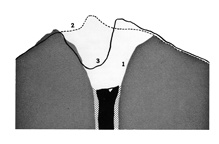March 3, 2003 marked launch of the anthology 100 Poets Against The War (edited by Todd Swift, Salt Publishing: Cambridge, UK & Applecross, Australia).
The project began with a call for submissions, on January 20, 2003, for poets to contribute to a downloadable electronic chapbook, which was published online on January 27, 2003 to coincide with Hans Blix’s report to the UN on weapons of mass destruction in Iraq. I immediately wrote and contributed a poem called “A Verse to War”. I felt compelled to participate for a few reasons: My father was a Vietnam War draft evader, so I was lucky enough to be born in Canada. My grandfather witnessed the levelling of Manila as a Technical Sergeant in the Pacific Theatre during World War II. Meanwhile, on the other side of the planet, the Nazis made short work of what little of our family was left in Hungary. Both my grandparents watched the World Trade Center collapse from their bedroom window. The smoke stank up their apartment for days.
I can’t remember the exact date that the 100 Poets anthology launched in Montréal, but I do remember that I had been in New York for the two weeks previous attending to my grandmother’s funeral and the distribution of her last effects, mostly books. When she was a child, my grandmother had some of her poems published in the Yiddish newspapers of New York’s Lower East Side. She graduated with a Master’s Degree in English Literature from Hunter College, but wound up teaching junior high school science in Queens for thirty years. She never wanted me to be a writer. Or rather, she never believed that I would become a writer. Which is to say, she never thought I’d make it as a writer. In the last face-to-face conversation I had with her before she died she said: “If it doesn’t work out, I won’t say ‘I told you so’. But if it does work out – well, then I’ll say, ‘My granddaughter, the novelist!’”
I witnessed both pro and anti war protests in progress in many of the small towns that the Greyhound passed through as I traveled home from New York to Montréal the day before reading at the 100 Poets book launch. Two of the more popular placard slogans still stand out in my head: “America is worth fighting for,” and “Another Veteran Against the War.” I couldn’t help thinking: My grandmother would have hated this.
I can’t remember if I ever sent my grandmother a copy of one of the three free downloadable and printable 100 Poets Against the War PDF chapbooks that Todd Swift and Val Stevenson assembled and published on Nthposition.com. If I did it wouldn’t have impressed her much. Her own mother had never bought a single paper that published her Yiddish poems and until I was anthologized in the Rinehart Reader my grandmother wasn’t likely to make a fuss.
Today, approximately two and a half years after the 100 Poets anthology launched in cities around the world, I stumbled across an online article that would have made my grandmother the schoolteacher sit up and take notice.
On a web site called: “Rethinking Schools Online” I found that in their Spring 2003 edition they had published a special collection of resources for teachers called: “Teaching About the War“. In her lesson plan, “Entering History Through Poetry“, Linda Christensen suggested using 100 Poets Against the War as a teaching aide. She wrote: “Opening a topic as volatile as war by getting students to talk about their fears and questions can help teachers understand the extent of student knowledge as well as their positions. … Students should feel comfortable entering a classroom conversation; otherwise, we’re not wrestling with issues; we’re pinning them down and force-feeding them. J. R. Carpenter’s poem “A verse to war” provides an opening for discussion.
Carpenter uses the repeating line “I am afraid,” then lists her fears. I asked students to look at the structure of the poem — the repeating line followed by a list. Then we generated potential lines and students wrote poems using this structure. Abigail, a sophomore in Anderson’s class, wrote about her brother: “I am afraid/of my brother leaving/to serve this country./I am afraid/I will never get the chance/to hug him again…/I am afraid of war.” Ashley, Abigail’s classmate, invented her own line and tied the war to the budget cuts: “I do not know/of war/of suffering/of fear./I do not know how my life will be altered…/I do not know/of destruction/of cold-blooded murder…/I do not know my future/of dreams unbroken/of non-potential/ of miseducation….”
Even though worse than my worst fears have come true for Iraq – and for America, for the two are now inextricably linked – and even though the above article was published over two years ago and I only found out about it today, it moves me immensely to hear that a poem that I wrote “provided an opening for discussion,” and that the 100 Poets project was put to use in this way. This, my grandmother would have loved.
A Verse to War
I am afraid
(of what will happen
of the rhetoric
of the silence
of not knowing).
I am afraid I don’t know what to contribute.
I am afraid
(of destruction
of waiting
of doing nothing
of adding fuel to the flames).
I am afraid I don’t have any answers.
I am afraid
(of trivializing
of propagandizing
of margins
of error).
I am afraid it is but a meagre thing to add –
a verse adverse to war.
Thank you to Todd Swift, Val Stevenson, Salt Publishing and to Vince Tinguely who first sent me the call for submissions. 100 Poets Against the War is still available for download or for purchase online. FOr more information please visit: Nthposition.com/100poets.php
. . . . .
